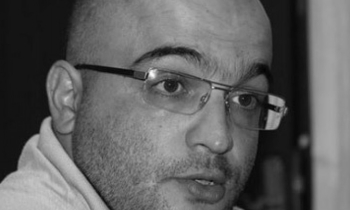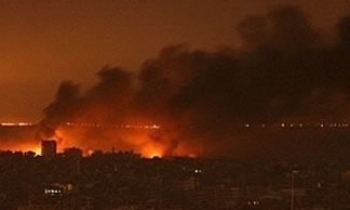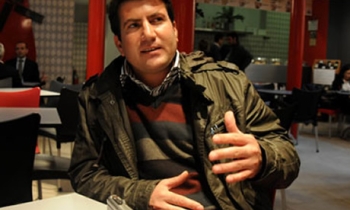As the Rugby World Cup is set to begin in France later this week, media restrictions imposed by the International Rugby Board (IRB) threaten full press coverage of the events.

The World Association of Newspapers (WAN) and an international coalition of news agencies, newspapers and press associations have expressed dismay at IRB’s refusal to lift certain restrictions on press coverage following two meetings at IRB’s Dublin headquarters.
The coalition has succeeded in making progress, however. In the run-up to the World Cup, which begins Friday, IRB has now abandoned or reduced a significant number of restrictions that were contained in the terms and conditions that journalists must sign to gain access to the events. These include:
- An increase in the number of photos that can be published digitally. IRB had originally imposed a limit on digital publication of five photos per half of a match but has now increased this to 20 photos per half during the match, and no limits after the match ends. The coalition believes that no limits on still photos are necessary even during a match.
- IRB has removed its requirement that no headlines or captions be superimposed on photos in print publications. This requirement, aimed at preventing sponsors logos from being blocked out, was seen as interfering with the normal editorial process. It is common practice to put headlines and captions on photos.
- IRB has agreed to allow photos from news media to be sold to the public, has introduced new procedures so that news organisations can challenge its decision to eject journalists suspected of breaching the rules, and has committed itself to establishing a new dialogue with publishers and news agencies through a new rugby-media commission to be established after the World Cup.

But serious restrictions remain in the terms and conditions for covering the events, notably IRB’s insistence that it is still entitled to be given free, worldwide and lifelong use of the news media’s copyright images. The coalition has offered to give favourable consideration to IRB requests for photos — which IRB verbally accepted in a meeting, though it later reversed itself and insisted that the news media be obligated to allow the IRB use of copyrighted photos.
IRB also maintains significant and unrealistic restrictions on the use of audio-visual materials on newspaper web sites, including materials from press conference and non-match day training sessions.
"For months we have attempted to safeguard our desire to brings news of the event to the public through our legitimate editorial operations. We have twice travelled to IRB’s Dublin headquarters in an attempt to ensure that our traditional newspapers and news services are able to carry reports and pictures as and when editors determine and not according to arbitrary IRB rules," said a statement from the coalition, which includes nearly 40 news organisations.
"These meetings have led to progress in removing some coverage restrictions imposed by IRB, including their original desire to determine how pictures appeared in our news pages and rules that were seen to limit freedom of expression. However, IRB has gone back on the some of the outcomes in the most recent Dublin meeting, particularly its refusal to fully recognise news media copyrights," the coalition members said in the statement.
“The sport business, just like show business, strips off journalists’ rights by threatening basic rights such as authors’ rights and access to public events”, said European Federation of Journalists (EFJ) Chair Arne König. “It’s not acceptable that a sports organisation only give media accreditations to certain journalists who give the IRB control over their work. We had similar experiences during the Olympic Games and during the Football World Cup last year. We strongly oppose this attitude and we will defend our rights”.

IRB has so far refused to reopen negotiations for coverage of the World Cup, which begins Friday, despite the coalition’s wish to do so.
During its last General Meeting in Zagreb in March 2007, EFJ members adopted Guidelines for Photographers’s Accreditation to Major Events. The guidelines provide that the only restrictions imposed on photojournalists should be only their own ethical principles and that their right to work must not be compromised by pressure to sign any contract which deprives them of their authors’ rights.
EFJ called on the French government to ensure that IRB respects French law, which recognises the right to information and authors’ rights. In particular, EFJ asked the Minister for Sports to intervene at her earliest convenience to request that IRB stops making money from the work of professional journalists.
EFJ members in France are considering calling on journalists accredited for the World Cup to show their solidarity with their photographer colleagues by boycotting the event. Similar boycotts have already taken place in other countries for the tours of musical artists who were pressuring photographers to sign away their rights.
The coalition representing the world’s press includes: the World Association of Newspapers; European Publishers Council; European Newspaper Publishers Association; Periodical Publishers Association; Reuters; Associated Press; Agence France-Presse; Newspaper Publishers Association; Newspaper Society; Society of Editors; Fairfax Media, Australia and New Zealand; News Ltd; News International; L’Equipe; Mirror Group; APN/Independent News & Media; New Zealand Newspaper Publishers; Association; New Zealand Press Association; Australian Press Council; dpa Deutsche Presse-Agentur GmbH; European Pressphoto Agency; Getty Images; World Editors Forum; International Sports Press Association; Sports Journalists Association; Football Writers Association; Optasportsdata; Infostrada; SIC - Sociedade Independente de comunicação, SA; Associated Press Sports Editors; American Society of Newspaper Editors; National Newspapers of Ireland; European Federation of Magazine Publishers; and PressesSports.









